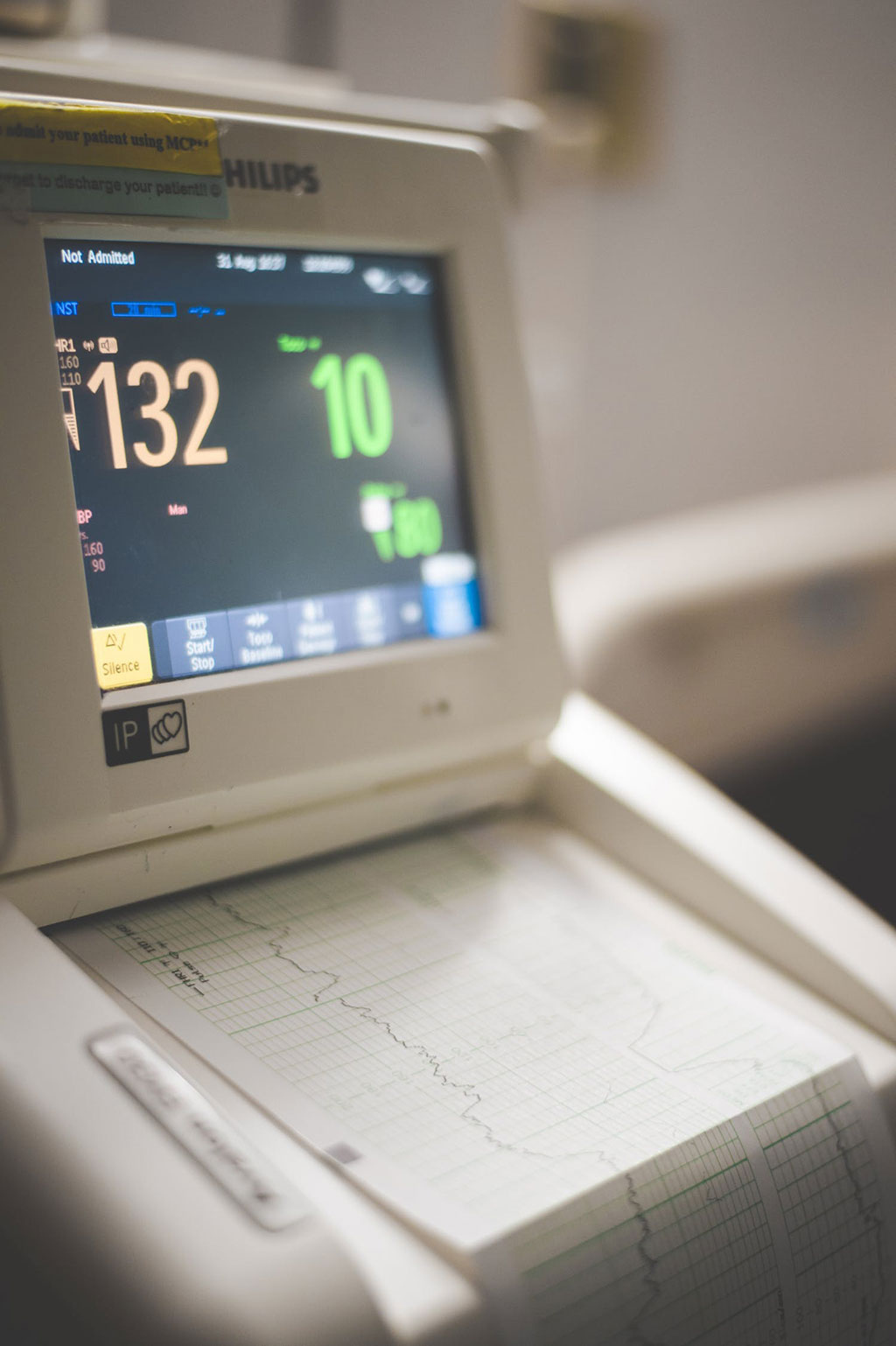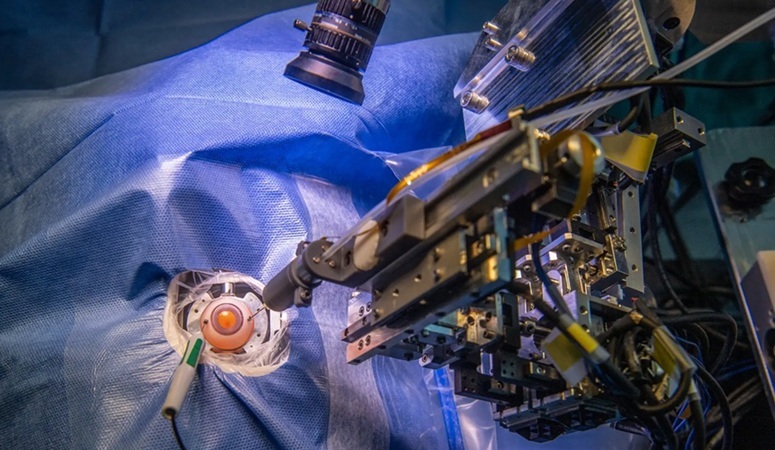Image-Based ECG Algorithm Uses AI to Diagnose Key Cardiac Disorders
|
By HospiMedica International staff writers Posted on 04 Apr 2022 |

As mobile technology improves, patients increasingly have access to electrocardiogram (ECG) images, which raises new questions about how to incorporate these devices in patient care. Machine learning (ML) approaches, specifically those using deep learning, have transformed automated diagnostic decision-making. For ECGs, they have led to the development of tools that allow clinicians to find hidden or complex patterns. However, deep learning tools use signal-based models, which have not been optimized for remote health care settings. Researchers have now developed an artificial intelligence (AI)-based model for clinical diagnosis that can use ECG images, regardless of format or layout, to diagnose multiple heart rhythm and conduction disorders.
The Yale Cardiovascular Data Science (CarDS) Lab (New Haven, CT, USA) has developed ECG Dx, a novel multi-label automated diagnosis model from ECG images designed to make AI-based ECG interpretation accessible in remote settings. The researchers who analyze multi-modal inputs from electronic health records to design potential solutions hope the new technology provides an improved method to diagnose key cardiac disorders. The model is based on data collected from more than two million ECGs from 1,506,112 patients who received care in Brazil from 2010-2017. One in six patients was diagnosed with rhythm disorders. The tool was independently validated through multiple international data sources, with high accuracy for clinical diagnosis from ECGs. There are a number of clinical and technical challenges when using AI-based applications.
“Current AI tools rely on raw electrocardiographic signals instead of stored images, which are far more common as ECGs are often printed and scanned as images. Also, many AI-based diagnostic tools are designed for individual clinical disorders, and therefore, may have limited utility in a clinical setting where multiple ECG abnormalities co-occur,” said Rohan Khera MD, MS, assistant professor in cardiovascular medicine, who led the team of researchers. “A key advance is that the technology is designed to be smart - it is not dependent on specific ECG layouts and can adapt to existing variations and new layouts. In that respect, it can perform like expert human readers, identifying multiple clinical diagnoses across different formats of printed ECGs that vary across hospitals and countries.”
Related Links:
CarDS Lab
Latest Critical Care News
- Pulse Oximeter Index Offers Non-Invasive Guides for Fluid Therapy
- Wearable Patch for Early Skin Cancer Detection to Reduce Unnecessary Biopsies
- 'Universal' Kidney to Match Any Blood Type
- Light-Based Technology to Measure Brain Blood Flow Could Diagnose Stroke and TBI
- AI Heart Attack Risk Assessment Tool Outperforms Existing Methods
- Smartphone Imaging System Enables Early Oral Cancer Detection
- Swallowable Pill-Sized Bioprinter Treats GI Tract Injuries

- Personalized Brain “Pacemakers” Could Help Patients with Hard-To-Treat Epilepsy
- Microscopic DNA Flower Robots to Enable Precision Medicine Delivery
- Origami Robots to Deliver Medicine Less Invasively and More Effectively
- Improved Cough-Detection Technology Aids Health Monitoring
- AI Identifies Children in ER Likely to Develop Sepsis Within 48 Hours
- New Radiofrequency Therapy Slows Glioblastoma Growth
- Battery-Free Wireless Multi-Sensing Platform Revolutionizes Pressure Injury Detection
- Multimodal AI to Revolutionize Cardiovascular Disease Diagnosis and Treatment
- AI System Reveals Hidden Diagnostic Patterns in Electronic Health Records
Channels
Surgical Techniques
view channel
Robotic Assistant Delivers Ultra-Precision Injections with Rapid Setup Times
Age-related macular degeneration (AMD) is a leading cause of blindness worldwide, affecting nearly 200 million people, a figure expected to rise to 280 million by 2040. Current treatment involves doctors... Read more
Minimally Invasive Endoscopic Surgery Improves Severe Stroke Outcomes
Intracerebral hemorrhage, a type of stroke caused by bleeding deep within the brain, remains one of the most challenging neurological emergencies to treat. Accounting for about 15% of all strokes, it carries... Read morePatient Care
view channel
Revolutionary Automatic IV-Line Flushing Device to Enhance Infusion Care
More than 80% of in-hospital patients receive intravenous (IV) therapy. Every dose of IV medicine delivered in a small volume (<250 mL) infusion bag should be followed by subsequent flushing to ensure... Read more
VR Training Tool Combats Contamination of Portable Medical Equipment
Healthcare-associated infections (HAIs) impact one in every 31 patients, cause nearly 100,000 deaths each year, and cost USD 28.4 billion in direct medical expenses. Notably, up to 75% of these infections... Read more
Portable Biosensor Platform to Reduce Hospital-Acquired Infections
Approximately 4 million patients in the European Union acquire healthcare-associated infections (HAIs) or nosocomial infections each year, with around 37,000 deaths directly resulting from these infections,... Read moreFirst-Of-Its-Kind Portable Germicidal Light Technology Disinfects High-Touch Clinical Surfaces in Seconds
Reducing healthcare-acquired infections (HAIs) remains a pressing issue within global healthcare systems. In the United States alone, 1.7 million patients contract HAIs annually, leading to approximately... Read moreHealth IT
view channel
Printable Molecule-Selective Nanoparticles Enable Mass Production of Wearable Biosensors
The future of medicine is likely to focus on the personalization of healthcare—understanding exactly what an individual requires and delivering the appropriate combination of nutrients, metabolites, and... Read moreBusiness
view channel
Philips and Masimo Partner to Advance Patient Monitoring Measurement Technologies
Royal Philips (Amsterdam, Netherlands) and Masimo (Irvine, California, USA) have renewed their multi-year strategic collaboration, combining Philips’ expertise in patient monitoring with Masimo’s noninvasive... Read more
B. Braun Acquires Digital Microsurgery Company True Digital Surgery
The high-end microsurgery market in neurosurgery, spine, and ENT is undergoing a significant transformation. Traditional analog microscopes are giving way to digital exoscopes, which provide improved visualization,... Read more
CMEF 2025 to Promote Holistic and High-Quality Development of Medical and Health Industry
The 92nd China International Medical Equipment Fair (CMEF 2025) Autumn Exhibition is scheduled to be held from September 26 to 29 at the China Import and Export Fair Complex (Canton Fair Complex) in Guangzhou.... Read more














